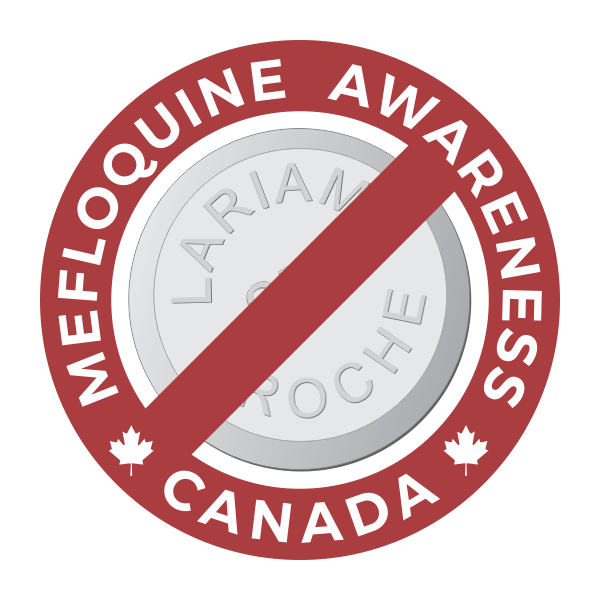Article by LA PRESSE
Health Canada and the Canadian military have put the health of Canadians at risk by not reacting quickly enough to new knowledge on mefloquine denounce scientists.One of them will even accuse the Canadian military to use “the same tactics that the tobacco industry” by denying the scientific consensus. Point four questions.
WHAT IS WRONG WITH HEALTH CANADA?
Basically, for the delay in responding to new studies showing the dangers of mefloquine. In 2013, the United States Food and Drug Administration (FDA) has added what is called a “boxed warning” to the label of mefloquine. This warning, the most serious to him, is “to draw attention to serious or life-threatening risk” of a drug.
The FDA is clearly mentioned the risk of long-term effects of mefloquine and advised to discontinue treatment before any neurological or psychiatric effects such as dizziness, depression, anxiety and many others.
The European authorities have acted similarly in 2014. However, such a warning only appeared on August 4 in Canada.
Remington Nevin, of Johns Hopkins University Bloomberg School of Public Health, spoke of a “serious failure” on the part of Health Canada.
“We talk about three years during which Canadian travelers were faced significant risks,” he told La Presse . Health Canada “has put the health of Canadians at risk,” also tells the American psychiatrist Elspeth Ritchie.
Health Canada refused repeated interview requests from The Press . By email, the Ministry points out that the official product monograph in 2003 advised patients to discontinue therapy in the presence of certain side effects. The expert Remington Nevin however considers this insufficient side effects list and believes that the warnings were not sufficiently clear.
WHAT DOES THIS MEAN FOR CANADIAN TRAVELERS?
They probably were not aware of all the potential risks of mefloquine. The psychiatrist Elspeth Ritchie points out that other safer and as effective drugs against malaria exist (Malarone, chloroquine, doxycycline).
“Today, given the risks and alternatives, I believe that nobody should take mefloquine,” she said.
ARE THE TRAVELERS THE ONLY ONES AT RISK?
No. Experts believe that mefloquine is particularly problematic in the military deployed in countries where malaria is present. The first reason is that many of the drug’s side effects (anxiety, sleep disorders, paranoia) can be confused with the normal reaction of soldiers sent into danger zone. The other is that such symptoms are often reported because of the military culture. This ensures that the warning signs that control to stop the medication on pain of possible long-term effects may go unnoticed.
After a mission, the effects caused by mefloquine can be easily confused with post-traumatic stress disorder, which prevents good deal affected military.
WHAT IS THE POSITION OF THE CANADIAN ARMY ON MEFLOQUINE?
Before the changes made by Health Canada, the Canadian military said this month a review of its use. Meanwhile, however, it continues to provide soldiers alongside other anti-malaria drugs.
“We still consider mefloquine as a first-line drug,” told La Presse Lieutenant Colonel Andrew Currie, head of infectious diseases within the Canadian military. According to him, the small size of Canadian missions against US or British missions allows for better detection of cons-indications and administering mefloquine safely.
The Canadian military argues that mefloquine is needed in some countries of the world, because the malaria parasite has become resistant to other drugs there. Three scientists interviewed by La Presse , however, deny this assertion. Lieutenant Colonel Currie also said that only “1 in 11,000” develops severe side effects associated with mefloquine.
“These are the figures that were used 20 years ago, says the psychiatrist Elspeth Ritchie. I now estimates that between 25 and 50% of patients develop psychiatric side effects from mefloquine. The exact proportion of patients in whom these effects are severe or persist in the long term, but my research and stories that collects make me say that it is much more than 1 of 11 000. “
The expert Remington Nevin is difficult to explain that the Canadian army do assertions which, according to him, do not correspond to current knowledge.
“The statements of the Canadian Armed Forces, and in particular those of its general physician, are very cynical attempts to create doubts about an issue for which there is a scientific consensus, he said. The general practitioner should be ashamed to use the same tactics we had already served the tobacco industry. “
Note that even if mefloquine is still considered a first-line drug, Canadian soldiers consume less. Mefloquine now account for about 5% of prescriptions of drugs against malaria, while she was the most popular option in the mid 2000. Last year, for example, only 42 members of the military have used.
“We allow individuals to make informed judgments about what anti-malaria medication is best for them. They can take another drug if they do not want to take mefloquine, “said spokeswoman Jennifer Eckersley.
The army says it has completed its review of the use of medicines against malaria at the end of March 2017. She could not say whether the new guidelines will be ready before the mission of maintaining peace three years qu’effectuera Canada in Africa, and certainly bring a lot of soldiers to consume anti-malaria drugs.
